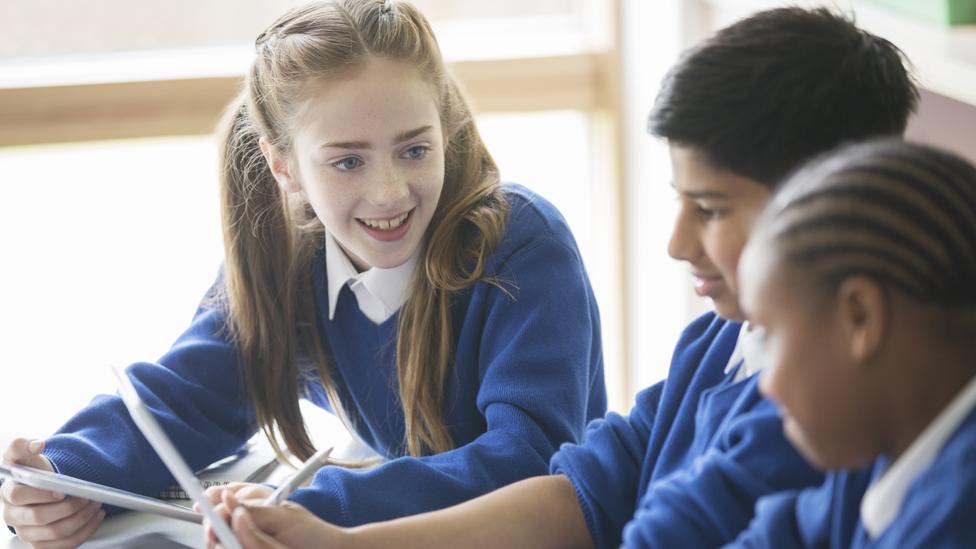Head teachers in England to reballot on strikes
- Published
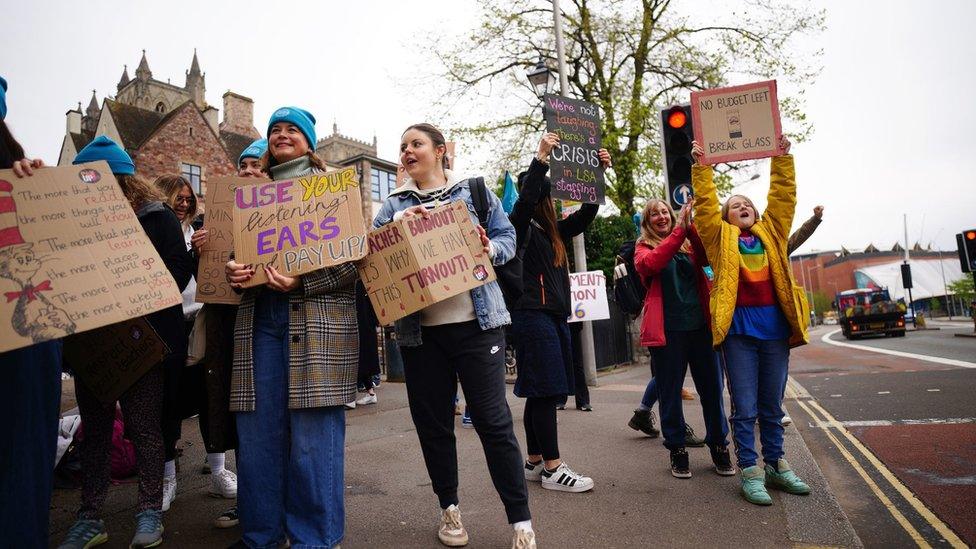
Teachers from the NEU have already confirmed more strike action and walked out on 27 April
Head teachers in England are to hold another vote on whether to strike over pay, funding, workload and wellbeing.
The National Association of Head Teachers union (NAHT), mainly representing primary heads, had already voted overwhelmingly to reject the government's pay offer for teachers.
The union held a strike vote in January which supported taking action but did not reach the required 50% turnout.
The Department for Education said its pay offer was "fair and reasonable".
Members of the National Education Union (NEU) have already been on strike, and action could continue into the next academic year.
Most state school teachers in England had a 5% pay rise in 2022.
But unions want above-inflation increases, and more funding to ensure pay rises do not come from schools' existing budgets.
Talks between the government and the NAHT and other education unions - the NEU, ASCL and NASUWT - took place in March.
That resulted in a pay offer comprising a 4.3% rise next year, as well as a £1,000 one-off payment this year. Starting salaries are also due to rise to £30,000 from September, as per the government's previous manifesto pledge.
The pay offer was rejected by each of the unions. No further negotiations have been planned and the Department for Education said pay would now be decided by the independent pay review body, which would recommend pay rises for next year.
The NEU has since confirmed further strike days, including a walkout which took place on Thursday 27 April. They are also planning to strike next week on Tuesday, 2 May, which will be the fifth national strike date this year.
The NASUWT said it would also reballot its members on strike action after failing to reach the turnout in its own ballot earlier in the year.
The other school leaders' union, ASCL, said it would ballot members on strike action for the first time in its history.
Jasmine Woodward, principal of Montgomery Primary Academy in Birmingham, said head teachers were in an "unprecedented" situation.
Asked how she felt about the prospect of more strike action by the NEU next term, she said: "It's a challenge balancing my need to keep the school open and reduce disruption for the children, with my desire to support my colleagues and my desire to show commitment to the concerns that have been raised."
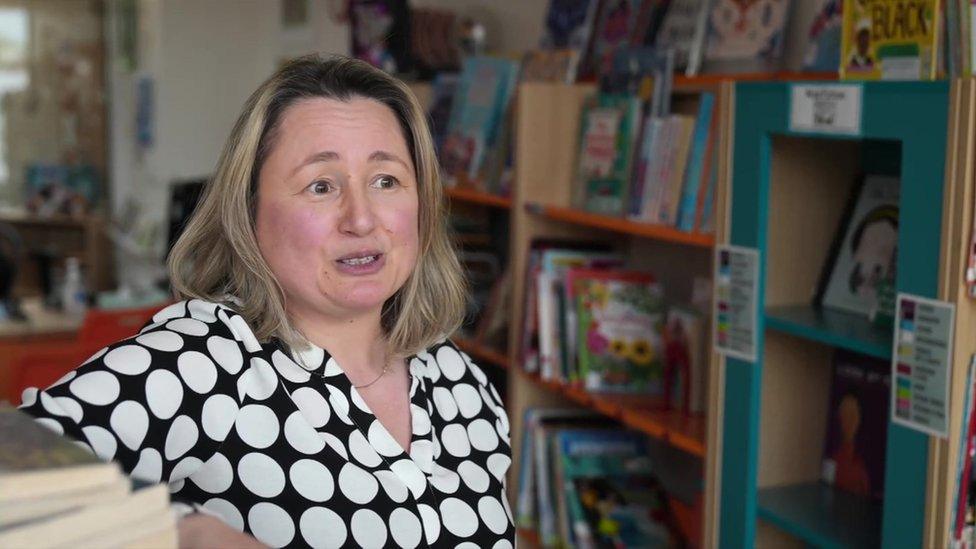
She said the school could have to make "very hard" financial decisions - including cutting back on staffing.
"We bring in music services and art and sport, and some of those we're going to have to lose if we're unlucky enough to continue to be in this situation," she said.
A Department for Education statement said: "We have made a fair and reasonable teacher pay offer to the unions, which recognises teachers' hard work and commitment.
"We know schools are facing increased costs like energy and staffing, and are providing an extra £2bn in each of the next two years to cover those costs. As a result, school funding is set to rise faster than forecast inflation in both 2023/24 and 2024/25."
The statement said school funding would be "at its highest level in history, in real terms per pupil" next year, as measured by the Institute for Fiscal Studies (IFS).
The IFS said in December, external that the increased funding would mean that school spending per pupil "will grow in real terms through to 2024 and will return to at least 2010 levels".
The general secretaries of all four education unions are due to speak together at a news conference on Friday afternoon at the NAHT's annual conference in Telford, and it is expected that future industrial action will be co-ordinated to have a greater impact.
Additional reporting by Sallie George and Hazel Shearing

Are you a parent of children who are affected? Are you a teacher with a view on the strikes? Please share your experiences by emailing haveyoursay@bbc.co.uk, external.
Please include a contact number if you are willing to speak to a BBC journalist. You can also get in touch in the following ways:
WhatsApp: +44 7756 165803
Tweet: @BBC_HaveYourSay, external
Please read our terms & conditions and privacy policy
If you are reading this page and can't see the form you will need to visit the mobile version of the BBC website to submit your question or comment or you can email us at HaveYourSay@bbc.co.uk, external. Please include your name, age and location with any submission.
- Published27 April 2023
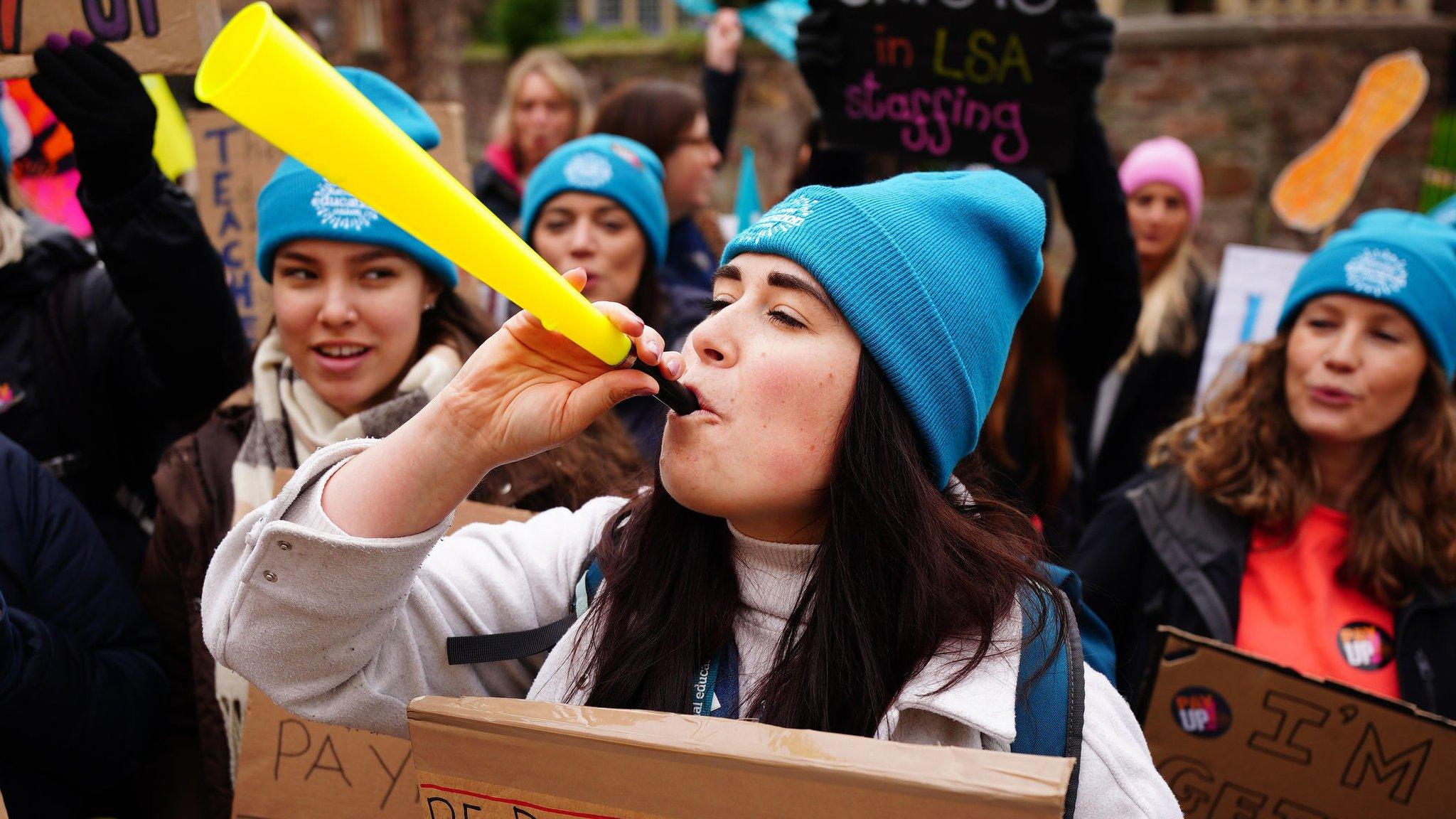
- Published20 April 2023
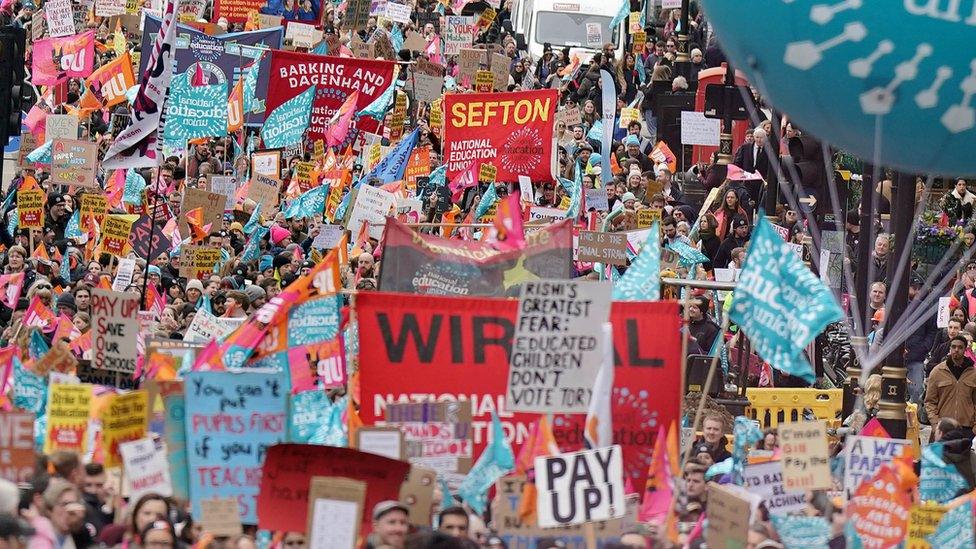
- Published15 April
